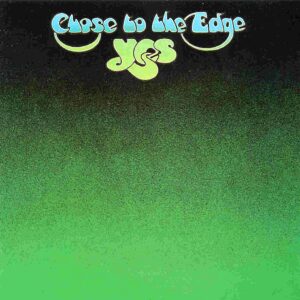
One of the most consistently fascinating musicians to emerge in the 21st century, Sufjan Stevens is nominally an alt-folk artist, with his hushed, vulnerable vocals and predominance of acoustic instruments. But that’s underselling his talents – he’s also a sophisticated arranger, especially on the more ambitious pieces on 2005’s Illinois, and he’s also dabbled in electronically based music, notably on 2010’s The Age of Adz. He’s named classical works, notably Steve Reich’s Music For 18 Musicians, as influential, and there’s clearly far more to Steven’s oeuvre than straightforward folk music.
Introduction
Stevens gained attention early in his career by announcing plans to make an album for every state of the USA. After making albums for Michigan and Illinois, he later admitted it was a promotional gimmick. While he’s releasing albums to a mainstream audience, Stevens identifies as a Christian, and his faith permeates his lyrics. I assumed that Steven’s best years were behind him after Illinois. He returned with 2015’s introspective masterpiece Carrie and Lowell, a strong contender for album of the year in many music publications.
I haven’t covered Stevens’ first two albums (2000’s A Sun Came and 2001’s Enjoy Your Rabbit) – I’ve never heard them, and they’re generally overlooked in favour of his later work. Outside the studio albums reviewed below, Stevens has also released a box set of Christmas music, an instrumental multimedia project (The BQE), and an Illinois out-take album (The Avalanche).
Sufjan Stevens Album Reviews
Favourite Album: Carrie and Lowell
Overlooked Gem: Seven Swans
A Sun Came

1999, not rated
Stevens plays fourteen different instruments on his debut. He states that it includes “traditional pop music, medieval instrumentation with Middle Eastern inflections, tape loops, digital samples, literary vocals, manic percussion, woodwinds, sitar, amp distortion and Arabic chants.” It’s more than an hour long.
Enjoy Your Rabbit

2001, not rated
Stevens’ second album is a song cycle inspired by the Chinese Zodiac. It’s based around electronic music, a style Stevens would return to on several subsequent records.
Michigan

2003, 8/10
The first in a series of fifty proposed albums chronicling every state of America, and Stevens’ third album overall, Michigan chronicles his native state. Accordingly, it’s full of malaise and blue-collar battlers, although songs like ‘Vito’s Ordination Song’ and ‘Oh Detroit, Lift Up Your Weary Head (Restore! Rebuild! Reconsider!)’ are tinged with some hope. Michigan sets out the basis of Stevens’ basic styles for his next few albums; he’s generally either delivering acoustic ballads, delivered with banjo or piano accompaniment, or overblown epics that channel touches of jazz and progressive rock.
For Michigan, it’s the acoustic pieces that are most effective; songs like ‘Romulus’, ‘The Upper Peninsula’ and ‘For the Widows in Paradise (For the Fatherless in Ypsilanti)’ are the standouts, infused with compassion. But the epics aren’t as convincing as they’d become on his next few albums – his arrangements would become bolder and more memorable.
It’s very good, but Michigan does drag in some places and it could stand some trimming – if you’re new to Stevens I’d suggest jumping to one of the subsequent albums first and coming back to this later.
Seven Swans

2004, 8.5/10
After Michigan suggested possibilities for both gentle acoustic songs and intricate epics, Seven Swans is firmly focused on Stevens’ material side. Thematically, it’s dealing with more blatantly Christian subject matter, like the “he is the Lord” climax to the title track.
The opening track ‘All of the Trees of the Field Will Clap Their Hands’ is gorgeous, with a gently building arrangement that gradually adds piano, rhythmic ethereal backing vocals, and percussion to the sparkling banjo that anchors the song. Some of the other instrumentation used is equally offbeat – Theremin powers the later phases of ‘In The Devil’s Territory’, while wheezy organs and choirs are also used to great effect, while ‘Sister’ quietens down from soaring rock to a gentle acoustic track. ‘That Dress Looks Nice On You’ is catchy in its low-key arrangement, while the title track and ‘The Transfiguration’ bring the record to a triumphant conclusion.
Seven Swans is a terrific record; Sufjan wouldn’t make another straightforward folk record until 2015’s even better Carrie and Lowell.
Illinois

2005, 9.5/10
After the excellent sideline of Seven Swans, Stevens moved one state south of Michigan to Illinois. While the two albums are similar in style, this time around it’s a lot more confident, and the more overblown pieces come alive in a way that their counterparts on Michigan never did. Stylistically, Illinois covers similar ground to Michigan, although it’s infused with touches of Chicago jazz, giving the state its own sense of musical identity. Despite a seventy-five-minute running time, there’s little that needs cutting, only tailing off right at the end with a couple of experimental instrumentals, but after seventy minutes of unmitigated entertainment, it’s difficult to begrudge them.
Among the introspective material, highlights include the charming piano opener ‘Concerning The UFO Sighting Near Highland, Illinois’, the paean to one of Illinois’ most notorious citizens ‘John Wayne Gacy’ (with the perceptive line “in my best behavior I am really just like him/Look beneath the floorboards for the secrets I have hid”) and the honest ‘Casimir Pulaski Day’, which throws around questions of inter-connected suffering, spirituality and sexuality, raising more questions than it answers. ‘Decatur’ pulls out a myriad of amusing rhymes (emancipator, alligator, debater, and aviator) and the peppy, breezy ‘Jacksonville’. Among the epics, ‘They Are Night Zombies!! They Are Neighbors!! They Have Come Back From The Dead!! Ahhhh!’ is the standout, a string-laden groove, while ‘The Man of Metropolis Steals Our Heart’ alternates between abrasive guitar and soothing balladry.
Illinois is terrific songwriting topped off by creative arrangements.
The Age of Adz

2010, 7/10
In 2009, Stevens announced that he’d never intended to complete the 50 States project and that it was a promotional gimmick. He instead released The Age of Adz in 2010. It’s a significant break from his previous work – lyrically, it’s more personal, with some of the songs inspired by Stevens’ experience with a debilitating viral infection in 2009. Apart from the opening track, ‘Futile Devices’, musically it explores different territory than his often acoustic albums, revisiting the electronic textures of 2001’s Enjoy Your Rabbit, and embracing vocal effects and hip hop beats.
The change in approach is disarming at first, and the synthetic textures disguise that the album still bears a lot of Stevens’ trademarks of sophisticated arrangements and gentle emotion. Melodically, tracks like the low-key ‘Vesuvius’ are very reminiscent of Stevens’ earlier work, it’s just underpinned by hip-hop beats and synthesisers, instead of banjos and acoustic guitars. The most significant track is the closer, the 25-minute ‘Impossible Soul’, which Stevens describes as akin to a Woody Allen film.
At 75 minutes it drags in spots, and it’s an outlier in Sufjan Stevens’ catalogue, but Age of Adz is a fascinating record from a fascinating artist.
Carrie and Lowell

2015, 10/10
After sonically expansive material on Illinois and The Age of Adz, Carrie and Lowell is a return to the folk approach of Seven Swans. Some subtle electronics are backing up the acoustic instruments, adding depth and flavour, but the focus is on the gentle melodies and guitar. Carrie and Lowell was inspired by Stevens’ complex relationship with his troubled mother, Carrie, and the songs were written after she passed away in 2012. Like Joni Mitchell’s Blue, the understated music focuses the listener’s attention on the emotionally naked and devastating lyrics.
The opening song, ‘Death With Dignity’, states “I forgive you, mother, I can hear you/And I long to be near you/But every road leads to an end.” The second track ‘Should Have Known Better’ sets out both the issues (“When I was three, three maybe four/She left us at that video store”) and hope (“My brother had a daughter/The beauty that she brings, illumination”). He also admits his own inner turmoil and the role of his faith.
Carrie and Lowell is a beautiful, courageous album, the strongest and most focused record that Stevens has made to date.
The Ascension

2020, 6/10
Sufjan Stevens’ career has been largely defined by its unpredictability. Over a two-decade recording career he’s bounced between gentle indie-folk, grandiose arrangements about US cities and landmarks, and creative electronica. Stevens’ latest effort, his first studio effort since 2015’s acclaimed Carrie and Lowell, is notable for its mundanity.
Stevens explained this to The Fader.
I wanted things to feel more universal and more generic, in a way. I embraced the use of cliches and catchphrases and idioms and colloquialisms. All that stuff started to like become the impetus for the songs, the meanings behind the songs. I kind of wanted to speak to the lowest common denominator. I wanted the songs to keep moving and be simple on the surface and to feel accessible in a way, as much as I’m able to do it because like even at my most poppiest, I’m a far cry from what’s being played on the radio right now. That was all really, really intentional.
Sufjan Stevens, The Fader
Of Stevens’ past work, The Ascension is closest in tone to the glitchy electronica of 2010’s The Age of Adz. As with Adz, The Ascension feels lengthy, sometimes connecting emotionally but not musically enticing enough to sustain its long running time.
Despite Stevens’ approach, songs like ‘Tell Me You Love Me’ still make an emotional connection. ‘The Ascension’ is an ambitious mini-epic that recalls the unfettered creativity of Illinois. Although it wouldn’t have fit the finished record, b-side ‘My Rajneesh’ is also notable as one of Stevens’ most fascinating works.
The Ascension is of Stevens’ patchier efforts, but he’s always worthy of respect for following his muse; hopefully, his muse brings out a classic next time around.
A Beginner’s Mind (with Angelo De Augustine)

2021, 7.5/10
A Beginner’s Mind is a collaboration between Sufjan Stevens and Angelo De Augustine, a younger artist on Stevens’ Asthmatic Kitty label. It is a concept album – Stevens and De Augustine created it in a cabin in upstate New York, where they’d watch movies for inspiration – each song is inspired by a specific movie. Some links to movies are more explicit than others – ‘Cimmerian Shade’ rhymes “I just want you to love me” with “Fix it all, Jonathan Demme”. The album is self-contained, with the pair providing all the instrumentation and production.
Despite the collaboration and the concept, A Beginner’s Mind feels like Stevens’ most straightforward album for a long time, like a return to the indie-folk days of Seven Swans. Stevens and De Augustine’s voices are distinguishable, but they’re so similar stylistically that it all feels of one piece. Due to the detached, academic nature of the project, it lacks the emotional punch that made previous Sufjan projects like ‘Casimir Pulaski Day’ and Carrie & Lowell appealing. ‘Back To Oz’ has an upbeat chorus that’s a welcome breath of fresh air. ‘Pillar of Souls’ was inspired by Hellraiser III: Hell on Earth, and has the arresting first line “I slept for five days/In stillness, I laid full of demonic visions”. De Augustine’s title track is pretty, with a lovely piano motif – inspired by 1990s Patrick Swayze and Keanu Reeves’s action movie Point Break.
A Beginner’s Mind is the folk-based Sufjan Stevens album that fans have desired after weird left turns like Christmas albums and electronica. But it’s a little underwhelming now it’s here.
Javelin
2023, 8/10
It’s an understatement to say that it’s been a tough year for Sufjan Stevens. He lost his long-term partner earlier in the year, an event that’s reflected in the opening lines of the album.
Goodbye, evergreen
Goodbye Evergreen
You know I love you
But everything heaven sent
Must burn out in the end

He was also diagnosed with Guillain-Barre Syndrome, an auto-immune disease. He had to relearn how to walk.
Stevens is an adventurous artist. He’s best known for his sensitive, introspective works like Carrie and Lowell and ‘Casimir Pulaski Day’. But his career has ventured much further – like the electronica of The Age of Adz. Javelin has hints of Stevens’ arranging flair – stacking choirs and strings – but at heart, it’s another soul-baring acoustic record.
The best songs are the most emotional. ‘Everything That Rises’ is named for a Flannery O’Connor collection of short stories, with Stevens singing “Jesus lift me up to a higher plane”. I’ve never heard anyone use the word “genuflecting” in a song before, but ‘Genuflecting Ghost” is gorgeous and hymn-like, Stevens’ voice vibrating and vulnerable.
Stevens has made better acoustic albums. But Carrie and Lowell is a high bar, and Javelin is well worthwhile.
Ten Favourite Sufjan Stevens Songs
Casimir Pulaski Day
Should Have Known Better
No Shade in the Shadow of the Cross
All The Trees of the Field Will Clap Their Hands
Jacksonville
The Upper Peninsula
That Dress Looks Nice On You
Decatur, or, Round of Applause for Your Step Mother!
Concerning the UFO Sighting Near Highland, Illinois
John Wayne Gacy, Jr.
Return to 2000s Reviews
Related Pages
About
Aphoristic Album Reviews is almost entirely written by one person. It features album reviews and blog posts across a growing spectrum of popular music.
Review Pages
Read about the discographies of musical acts from the 1960s to the present day. Browse this site's review archives or enjoy these random selections:
Blog Posts
I add new blog posts to this website every week. Browse the archives or enjoy these random selections:
























